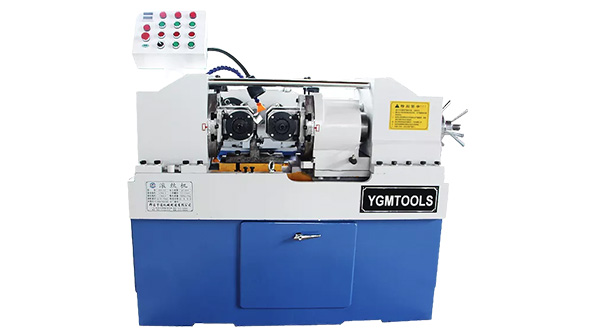
-
 Afrikaans
Afrikaans -
 Albanian
Albanian -
 Amharic
Amharic -
 Arabic
Arabic -
 Armenian
Armenian -
 Azerbaijani
Azerbaijani -
 Basque
Basque -
 Belarusian
Belarusian -
 Bengali
Bengali -
 Bosnian
Bosnian -
 Bulgarian
Bulgarian -
 Catalan
Catalan -
 Cebuano
Cebuano -
 Corsican
Corsican -
 Croatian
Croatian -
 Czech
Czech -
 Danish
Danish -
 Dutch
Dutch -
 English
English -
 Esperanto
Esperanto -
 Estonian
Estonian -
 Finnish
Finnish -
 French
French -
 Frisian
Frisian -
 Galician
Galician -
 Georgian
Georgian -
 German
German -
 Greek
Greek -
 Gujarati
Gujarati -
 Haitian Creole
Haitian Creole -
 hausa
hausa -
 hawaiian
hawaiian -
 Hebrew
Hebrew -
 Hindi
Hindi -
 Miao
Miao -
 Hungarian
Hungarian -
 Icelandic
Icelandic -
 igbo
igbo -
 Indonesian
Indonesian -
 irish
irish -
 Italian
Italian -
 Japanese
Japanese -
 Javanese
Javanese -
 Kannada
Kannada -
 kazakh
kazakh -
 Khmer
Khmer -
 Rwandese
Rwandese -
 Korean
Korean -
 Kurdish
Kurdish -
 Kyrgyz
Kyrgyz -
 Lao
Lao -
 Latin
Latin -
 Latvian
Latvian -
 Lithuanian
Lithuanian -
 Luxembourgish
Luxembourgish -
 Macedonian
Macedonian -
 Malgashi
Malgashi -
 Malay
Malay -
 Malayalam
Malayalam -
 Maltese
Maltese -
 Maori
Maori -
 Marathi
Marathi -
 Mongolian
Mongolian -
 Myanmar
Myanmar -
 Nepali
Nepali -
 Norwegian
Norwegian -
 Norwegian
Norwegian -
 Occitan
Occitan -
 Pashto
Pashto -
 Persian
Persian -
 Polish
Polish -
 Portuguese
Portuguese -
 Punjabi
Punjabi -
 Romanian
Romanian -
 Russian
Russian -
 Samoan
Samoan -
 Scottish Gaelic
Scottish Gaelic -
 Serbian
Serbian -
 Sesotho
Sesotho -
 Shona
Shona -
 Sindhi
Sindhi -
 Sinhala
Sinhala -
 Slovak
Slovak -
 Slovenian
Slovenian -
 Somali
Somali -
 Spanish
Spanish -
 Sundanese
Sundanese -
 Swahili
Swahili -
 Swedish
Swedish -
 Tagalog
Tagalog -
 Tajik
Tajik -
 Tamil
Tamil -
 Tatar
Tatar -
 Telugu
Telugu -
 Thai
Thai -
 Turkish
Turkish -
 Turkmen
Turkmen -
 Ukrainian
Ukrainian -
 Urdu
Urdu -
 Uighur
Uighur -
 Uzbek
Uzbek -
 Vietnamese
Vietnamese -
 Welsh
Welsh -
 Bantu
Bantu -
 Yiddish
Yiddish -
 Yoruba
Yoruba -
 Zulu
Zulu
Innovative Solutions for Efficient Automatic Thread Rolling Machine Production and Application Processes
The Advancements in Automatic Thread Rolling Machines Revolutionizing Precision Manufacturing
In the realm of precision manufacturing, the demand for high-quality threaded products has surged due to the growing needs of various industries, including automotive, aerospace, and electronics. Automatic thread rolling machines have emerged as a pivotal solution, enhancing the efficiency and accuracy of the threading process. This article delves into the significance of these machines, their working principles, and the advantages they offer to manufacturers.
Understanding Thread Rolling Technology
Thread rolling is a cold forming process that involves the deformation of metal to create threads on a workpiece. Unlike traditional cutting methods, which remove material, thread rolling displaces it, allowing for stronger, more durable threads without compromising the integrity of the material. The process generally involves the use of two or more rolling dies that shape the metal as it is passed through, producing threads of exceptional precision.
Automatic thread rolling machines are designed to streamline this process. They are equipped with advanced automation and control systems that enhance efficiency, reduce labor costs, and minimize errors associated with manual operations. These machines can accommodate various materials, including steel, aluminum, and brass, making them versatile tools in manufacturing.
Key Features of Automatic Thread Rolling Machines
1. High Speed and Efficiency One of the most significant advantages of automatic thread rolling machines is their speed. Capable of producing thousands of threaded items in a single hour, these machines can significantly reduce production times and increase output.
2. Precision and Quality Quality control is paramount in manufacturing, and automatic machines excel in producing consistently accurate threads. The precision of these machines minimizes the risk of defects, ensuring that the end products meet stringent standards and specifications.
automatic thread rolling machine product

3. Reduced Labor Costs The automation of the thread rolling process means that fewer operators are required, leading to lower labor costs. Moreover, with the reduction of human error, manufacturers can further decrease costs associated with rework and waste.
4. Versatility Modern automatic thread rolling machines can be easily adjusted to accommodate different sizes and types of threads. This adaptability is crucial for manufacturers who need to shift between different product lines without extensive downtime.
5. Improved Surface Finish The cold forming process of thread rolling often results in a superior surface finish compared to traditional cutting methods. This is especially important in applications where surface integrity and aesthetics play a significant role.
Applications and Industries
Automatic thread rolling machines are utilized in various sectors. In the automotive industry, they are employed to produce bolts, nuts, and other fasteners crucial for vehicle assembly. The aerospace sector benefits from these machines for manufacturing high-strength components that must withstand extreme conditions. Additionally, electronics manufacturers rely on precision threading for connectors and other critical components.
Conclusion
As industries continue to evolve, the demand for high-quality, precise threaded products is only expected to grow. Automatic thread rolling machines represent a significant advancement in manufacturing technology, offering speed, efficiency, and precision. By investing in these machines, manufacturers can streamline operations, reduce costs, and improve product quality, thereby gaining a competitive edge in the global market.
In summary, automatic thread rolling machines are not just tools; they are vital assets that enhance productivity and quality in modern manufacturing. Embracing this technology ensures that businesses are well-equipped to meet the challenges of today's dynamic industrial landscape.
